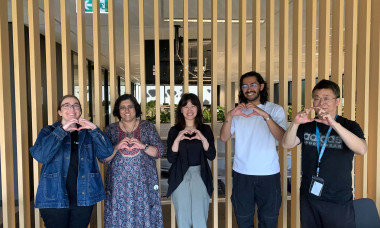VET is leaning into transformation and innovation. Has the future arrived?
The VET industry has been talking about digital transformation and innovation for a very long time now.
For years, Governments, think tanks, industry pundits, consultants, technologists (yes, that includes us) and VET providers themselves have all taken turns arguing over the need for, or benefits of, investing in change.
While the market was moving slowly in the right direction, often, there has been a reluctance to go ‘all-in’, largely due to the fact that things seemed to be working just fine just as they were.
Providers offered a valuable service. Students came to learn and acquire skills. While things were changing at the edges, there was no pressing need to fix something that wasn’t clearly broken.
That all changed with the Covid-19 pandemic. And, as the latest ReadyTech Voice of VET RTO Industry Australia Report reveals, the future we’ve all been talking about may have arrived.
Digital transformation
VET providers have now fully embraced digital transformation.
To understand just how much, it’s useful to look back and remember that, in our first two RTO Industry Australia Reports conducted in 2018 and 2019, less than half (44%) of providers offered any online learning.
With VET being more hands on and even more suited to classroom learning than other education sectors, like higher ed or international, online learning was not something providers were exactly jumping at at this time.
This year's Voice of VET survey will show that number has skyrocketed through Covid-19 to reach 78% of providers in 2022. It’s clear that, where possible, providers have augmented their offerings to include remote and hybrid learning.
Two thirds of the market (69%) also now say digital transformation is a high priority for their provider, and half say that they have a documented digital transformation strategy or plan.
Innovation
The about face doesn’t stop at the embrace of digital transformation and technology. Providers are also seeing change arrive in other forms, including course types and industry engagement.
The 2022 Voice of VET survey will show that significantly more non-accredited courses were offered by VET providers in the 2021 calendar year. In fact, 55% of the market offered non-accredited courses, representing an increase of 15% since 2020.
Non-accredited short courses specifically are now offered by 51% of the RTO market, an increase of 12% since 2020. RTOs saw demand increase the most for accredited short courses and skillsets as well as non-accredited micro-credentials during 2021.
Are we already in the future?
The future was supposed to bring a tidal shift towards embracing digital transformation and innovation. It’s clear that, from the latest Voice of VET report, we are seeing that happen.
Is the future already here?
There's no doubt the change we are witnessing is a new epoch for the vocational education and training industry. While some were moving to transform prior to Covid-19, now more than ever, the market is responding to the perceived needs of the future.
We may not be completely ready for the future. But we’re more ready than we were.
To download the Voice of VET RTO Industry Report 2022 now click here.






